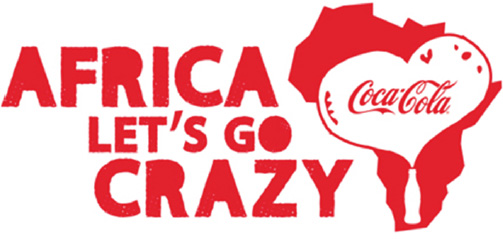PART V
I devote this, the final section of our course to the meaning a Globalization for the Nation State. Sad to say, the Coronavirus is as good an example of globalization as any other. Suddenly, we have awakened to a fact that most people in the world have experienced their entire lives: We are vulnerable. And we will experience the Coronavirus’s social and political consequences for the rest of our lives.
The term “globalization” is frequently used as thought it were a recent discovery. I am uncomfortable with the concept because it is so vague. If we define globalization as a massive expansion in contacts and communications among peoples and the spread of new technologies, I’m afraid that Genghis Khan (1162-1227 AD) and Alexander the Great (356-323 BC) would be offended by being excluded.
To avoid stretching the concept too far, I will focus on a few contemporary ways in which they world has become, as they say, “a smaller place.” To do this, I will debunk a three popular mythologies about where we are and where we are going. These are the myths of global rationality; terrorist irrationality; and the liberal-democratic end of history.
A manifestation of globalization and the coming together of the American fabric: The Funeral of Knut Rockne and the American Experience
36. LECTURE: Monday, November 2
Myth #1: “The spread of global liberalism is rational.” No, it’s not always rational! Its effects are often counterproductive and destabilizing.
Assumption: We tend to associate the idea of “globalization” with the spread of our own values. It’s sheer mythology to imagine that these values are uniformly appropriate for the rest of the world.
Assignments: So, is globalization good or bad? Or should we frame the question differently?
Globalization and the Mythology of Coca-Cola WATCH
Benjamin Barber, “Jihad vs. McWorld” PRINT AND READ
John Rapley: “The New Middle Ages,” Foreign Affairs (May-June 2006) At JSTOR, then search through ProQuest Social Science Journals: PRINT AND READ
“The French Colonialist’s Global Comeuppance,” Foreign Policy, January 2015: Locate at Hesburgh’s eJournal PRINT AND READ
Tuesday, November 3, America Votes!
37. CLASS DISCUSSION: Wednesday, November 4
We take a deep breath and try to make sense of Election Day
38. DISCUSSION SECTION: Friday, November 6
Paragraph Assignment: Has political history, as we have known it (see Fukuyama) come to an end, or are we destined to relive the conflicts of the past (see Stanley and Lee)?
For this discussion, read only Fukuyama’s Introduction and Sections 3 and 4. You should complete these readings before this section meeting:
Francis Fukuyama: “End of History,” National Interest, Summer 1989 PRINT AND READ
Timothy Stanley and Alexander Lee, “It’s still not the end of history” PRINT AND READ
39. LECTURE: Monday, November 9
Reflections on liberal democracy: My bias for hope
Today’s Assumption: It’s hard to be optimistic about the chances for global liberalism, especially as we struggle with the devastating consequences of a pandemic. But it’s reasonable to be hopeful. It’s also necessary.
Assignments:
Samuel Huntington: “Democracy’s Third Wave,” Journal of Democracy, Spring 1991. See JSTOR at PRINT AND READ
Knowledge@Wharton, “Lew Gerstner’s turnaround tales at IBM,” READ
Cas Mudde, “It’s fashionable to say that democracies are dying,” The Guardian, January 28, 2018 PRINT AND READ
Karen Weintraub, “Steven Pinker thinks the future is looking bright” PRINT AND READ
“Democracy in Tunesia” READ

40. LECTURE: Wednesday, November 11
Myth #2: “We are the end of history.” No way! We are only kidding ourselves when we make this assumption. This attitude explains why the United States is so unpopular throughout the world. It also explains why many of our allies now feel sorry for us.
Today’s assumption: As the Corona virus pandemic has demonstrated, the world is ultimately not ours to control. Still, I believe that we can take some steps to make it better for ourselves and, equally important, for others. Another way framing the issue is: On why liberalism is not enough.
My bias for perspective about our limitations.
Read these short essays in sequence and ask yourself whether each will lead us in the right direction.
Future Scenarios
David Leonhardt, “It’s 2022” PRINT AND READ
Grounds for Hope
Kelly J. Baker, “Why I remain hopeful,” Chronicle of Higher Education READ
Alan Weisman, “The World Without Us” WATCH
Samuel Scheffler, “The Importance of the afterlife—seriously” PRINT AND READ
Your final assignment is HERE
¥
Ecclesiastes 9:11 “I returned, and saw under the sun, that the race is not to the swift, nor the battle to the strong, neither yet bread to the wise, nor yet riches to men of understanding, nor yet favor to men of skill; but time and chance happen to them all.”
